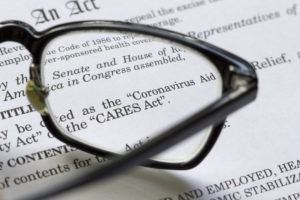 The coronavirus pandemic has unquestionably wreaked havoc in the US, sickening millions of Americans and killing hundreds of thousands of our relatives, friends, neighbors and colleagues.As the coronavirus continues to surge, US employers are questioning how sick leave and disability apply to Covid-19, and how they can keep on top of it all.
The coronavirus pandemic has unquestionably wreaked havoc in the US, sickening millions of Americans and killing hundreds of thousands of our relatives, friends, neighbors and colleagues.As the coronavirus continues to surge, US employers are questioning how sick leave and disability apply to Covid-19, and how they can keep on top of it all.
As of Jan. 1, employers no longer are required to provide two weeks of paid sick leave for employees who become ill with Covid-19, or two weeks of paid sick leave for employees caring for a quarantined relative.Also gone: 10 weeks of paid family leave to care for a child whose school or daycare center has been shut down due to the pandemic. These provisions affected only those private businesses with fewer than 500 employees.
However, three-fourths of Americans who work for private businesses do have access to at least some paid sick leave. That works out to 86% of full-time workers and 45% of part-time workers. And the Family and Medical Leave Act (FMLA) may allow up to 12 weeks of unpaid medical leave for an employee who has been sickened by Covid-19 or is caring for a relative with Covid-19.
Additionally, employer-sponsored disability insurance — required in most states — may cover Covid-19. Short-term disability coverage may kick in if a medical quarantine leaves an employee unable to work. Covid-19 survivors who experience lingering symptoms may qualify for long-term disability coverage. Long-term disability insurance requires that an employee be unable to work for at least 90 days until he or she can begin receiving benefits.
Suffice it to say that sick leave and disability involve a mind-boggling patchwork of regulations and concerns for employers. Fortunately, technology can help employers cope with sick leave and disability in the Covid-19 era. For instance, the right technology platform can help an employer easily:
- Manage employee benefits, including short-term or long-term disability insurance.
- Adjust payroll for workers who are on leave or disability.
- Track and securely store employee data.
- Comply with state and local regulations. Twelve states, the District of Columbia, and 22 cities and counties have laws in place that let eligible employees take paid time off if they or their family members are sick. In response to the pandemic, other state and local governments have passed laws granting emergency paid sick leave to qualified employees.
Covid-19 has affected workplaces like no other issue in our lifetimes. That’s why it’s imperative for employees to stay aware of the ever-changing landscape regarding sick leave and disability, and why it’s important for employers to consider the right technology platform to help ensure employees are receiving their sick leave and disability benefits without a hitch.








